Why Unlearning is an Essential Skill for Leaders of Today, According to Executives

As technology, workforce expectations and global realities shift, today’s leaders must let go of outdated methods and mindsets. Six innovators share how unlearning has become essential to navigating constant change – and uncovering new opportunities.
Dr Catriona Wallace
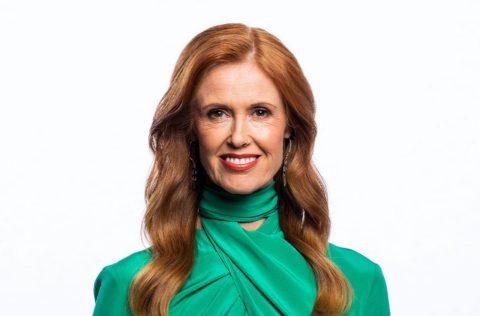
Tech entrepreneur; founder of the Responsible Metaverse Alliance; adjunct professor at AGSM at the UNSW Business School; author of Rapid Transformation.
On leadership
“I used to hold as a hard truth that you couldn’t express emotion in leadership, that it was much more about being clinical, scientific – that was how I was trained as an academic and also as a business leader. It’s absolutely untrue – I think the best leadership involves the leader having emotions and values that they believe in and expressing those in the business.”
On hiring
“Hiring a person based on their qualifications and where they had worked failed me time and time again. When I founded Flamingo Ai in 2013, instead of hiring engineers who had a master’s degree and had worked at high-profile organisations, I spent time with the person and tested their competencies and capabilities. I found some of the most outstanding team members that way. The gold-plated CVs had been a distraction that I got caught up in before I woke up to it.”
Angad Soin
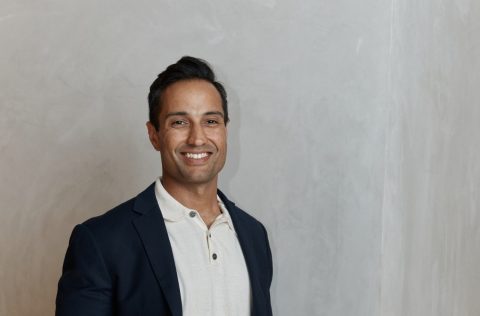
Managing director Australia and New Zealand and global chief strategy officer for SME accountancy software company Xero; previously partner and national lead with Deloitte’s strategy and transformation office.
On succession planning
“Historically, an apprenticeship model was built into companies: talented young people learn from other people so they can grow and develop their careers. AI and automation means the jobs we used to get people doing when they were starting out at companies are going away. That’s not really going to work. You didn’t actually hire those people just to do those simple tasks – that was their way of learning. How are we going to create a model where apprenticeships can still happen and we can still find and attract talented people? Regardless of what technology comes, we need people who can think and problem-solve. I don’t have a great answer but I’m consciously thinking about how we onboard people and how not to sleepwalk into this.”
On strategy
“I spent many years doing strategies in my career as a consultant. Everyone wants a five-year plan but the reality is you end up refreshing it in three years and move on. With the level of change we now have – whether it’s technological, global uncertainty or macroeconomic changes – the annual strategy review can’t be a casual stress test because the world has probably changed dramatically. You can’t whiplash a company into changing strategy but leaders have to be constantly watching trends and keeping a log: ‘Is this a weak trend or a strong trend?’ If you’ve seen it for multiple months it’s upon you as a leader to say, ‘Time out, team, something’s coming and we should pause and reflect. Are we still heading in the right direction?’ It doesn’t mean you’re changing your strategy every six months but you have to retest more frequently the assumptions that drove your strategy.”
On asking for help
“Early in my career, we did a piece of work for a client and we got to the end of the process and I sat down with my manager thinking, ‘I smashed it.’ I did a lot of it solo and we got a great outcome. My manager gave me a good rating but not a great rating and I was a bit shocked. It was a lesson that I still hold true and it’s the hardest thing for me to keep unlearning. He said, ‘I offered you help so many times and you said no. I gave you lots of hints and you said no. So you worked harder and longer than you needed to. You can’t be a leader if you can’t ask for help.’ It’s in my nature to be, ‘Okay, what’s the problem? How do we solve it? Let’s go and drive it.’ The reality is that you can’t scale a team, a company or your own impact if you don’t ask for help.”
Kate Russell
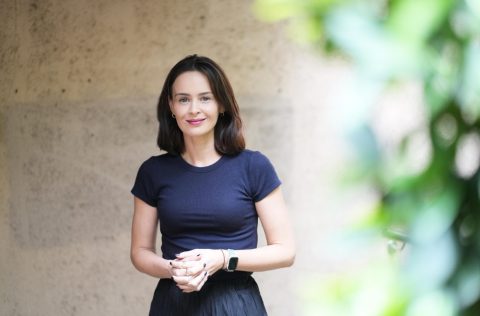
Proud Awabakal woman and CEO of Supply Nation, which verifies and connects First Nations businesses with government and corporate Australia; chair of the Diversity Council of Australia’s Aboriginal and Torres Strait Islander external advisory panel.
On flexibility
“I used to rely on leading by proximity – if you could see people in the office and hear chatter in the corridors, that gave me a sense of how the team was going from a performance perspective and also organisational culture. Presence became shorthand for productivity but that doesn’t hold up anymore. At Supply Nation, our teams are across communities, working remotely and on the road. Visibility isn’t the same as impact and just because someone’s at their desk doesn’t mean they’re moving us forward. Giving people trust and responsibility has cultural roots as well – our way of working in the community has always been collective and based on a sense of values and trust. What does everybody do and what is the role that you play in this bigger system? When you lean into that, you don’t need to see someone to know that they’re contributing.”
On global uncertainty
“The pandemic started a trend of, ‘You never know what you’re going to wake up to.’ Boards and management have to be comfortable in saying, ‘Well, there are certain things we can mitigate and certain things we can’t.’ Let’s reconsider the traditional risk matrix in an organisation and start rebuilding from the ground up. What have we learnt and what can we take from these very difficult scenarios and apply to hypotheticals that might occur in the future? Many of us used to think, ‘This is what I do, I manage this box and until it goes red it’s okay.’ That doesn’t work anymore. Personally, I find comfort in the discomfort – seeking perfection is off the table.”
Professor Brendan Crabb
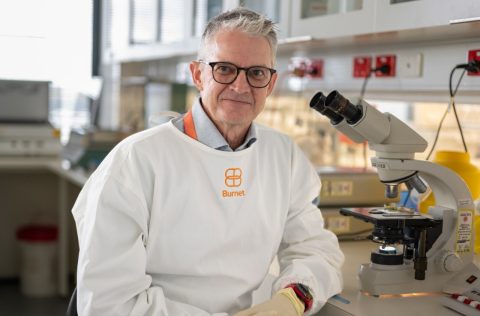
Director and CEO of scientific research and public health organisation the Burnet Institute; infectious disease researcher with a special interest in malaria and addressing barriers to maternal, newborn and child health in the developing world.
On leadership
“I’ve been CEO here for 17 years now and I arrived as a scientist. The research side has a climate and culture of lifelong learning – if you’re not receptive and interested in other people’s opinions you are not going to go very far. I came into the CEO role thinking subconsciously that there was a formula to follow. My discovery has been that senior leadership roles are just as lifelong learning-focused as any science role. It means you’re a better listener because you’re actually really interested in what other people have to say. It breeds genuine humility, which makes you nimble, open to change and accepting that your strategy may not be infallible and your processes may not be perfect. We come in with big egos – and I still have one – but that spirit of leadership being lifelong learning is the key to doing it well for a long time.”
On technology
“The last big technology revolution was the internet and academics like me had it before anyone else – it came from our world. We were cutting-edge and it took us a while to realise that we were well ahead of the rest of society. Now my perception is it’s the opposite – it’s running very fast and we’re being left behind. AI and machine learning and the ChatGPT era is changing everything at speed. How do we sensibly adopt it without being rash or doing something we don’t fully understand? I love technological advances and adopting things fast – that’s been my business and my vocation – but I feel different about this one.”
Silvija Martincevic
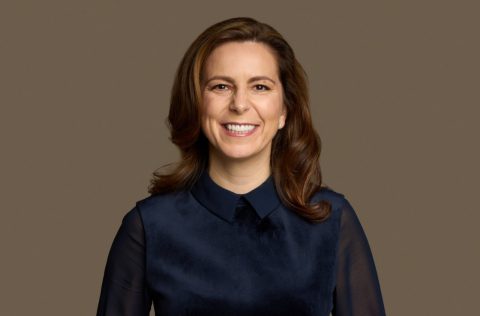
CEO of workforce management software company Deputy, one of Australia’s privately held tech “unicorns”; board director with United States-based microfinancing nonprofit Kiva.
On inclusivity
“The company that I lead covers three continents. For the first time in history companies have five generations – gen alpha, gen Z, millennials, gen X and boomers – working with each other and they all work very differently. The management practice of announcing and enforcing ain’t working – maybe that was the way your grandma worked but it’s not how gen Z works and definitely not the new alpha generation. I believe in co-designing. The result of an inclusive management strategy – where you have your ear to the ground, rather than always looking up at the CEO/dictator to give you an answer – may feel slower upfront but it’s faster in reality and dramatically more resilient. You’ll have more people pushing harder because they’re listened to.”
On adaptability
“Early on in Deputy’s international expansion, I thought I could take learnings from one market into another. That’s the fastest way to fail and now we throw out the home-market playbook when we go into new markets. What worked in Sydney and Melbourne is for sure not going to work in San Francisco and Los Angeles. Instead, we relearn the product market-fit in each country – you have different regulatory environments, different competition and different things that matter to small businesses in those areas. While that costs you a little bit of speed, it saves you years later. You can’t be exporting a product, you need to build a business and to build a business, you have to start from first principles and learn what works in that particular market.”
Dr Ken Henry
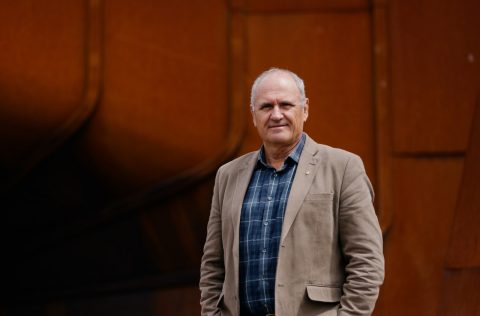
Economist and former long-time federal government secretary to the Treasury; author of Australia’s Future Tax System Review (the Henry Tax Review) in 2010; chair of both the Australian Climate and Biodiversity Foundation and the government’s Nature Finance Council.
On the way forward
“Before I had any leadership positions in government or business, I was an academic economist, trained in neoclassical economics, which I used to teach at university. I was a strong believer in the textbook model of capitalist democracy – basically that humanity will flourish in an economic system in which business leaders have no social responsibility beyond profit and obeying the laws of the land. As an economist, I understood that for that model to work, democratically elected governments would ensure that markets were competitive, that there was no fraud or deception, that there was an appropriate provision of public goods and that in particular there was intergenerational equity. I don’t believe any of that now. It’s a lovely theoretical model but it hasn’t been working in practice. Many of the problems we’re grappling with now are because of that approach. Some problems demand cooperation, not argument. We need people in leadership positions in business and government being prepared to work in a cooperative fashion in the national interest. I’m a natural pessimist and yet I’m quite optimistic about the period ahead because I think younger people are going to say, ‘Hang on a second – we have to do things differently.’”



